Maintaining healthy skin is essential for protecting our body from the external environment. Proper hydration, adequate nutrition, and effective skin care practices are critical for healthy skin
Our diet plays a crucial role in promoting healthy skin, as certain nutrients are essential for skin health, while others can contribute to skin damage and premature aging.
The Relationship between Nutrition and Skin Health
Nutrition is vital for maintaining healthy skin. The foods we consume can have a direct impact on our skin’s appearance and function.
Adequate hydration is essential for healthy skin, as it flushes out toxins and keeps the skin plump and hydrated, reducing the appearance of fine lines and wrinkles.
Certain vitamins and minerals, such as vitamin C, vitamin A, and zinc, are crucial for maintaining healthy skin. Vitamin C is essential for collagen production, vitamin A regulates sebum production, and zinc helps regulate inflammation and reduce the appearance of acne.
Antioxidants, such as vitamin E, vitamin C, and beta-carotene, neutralize free radicals and protect the skin from damage.
Essential fatty acids, like omega-3 and omega-6, maintain the skin’s moisture barrier, reduce inflammation, and improve the appearance of acne.
The Importance of a Healthy Diet for Skin Health
1. Eating a healthy diet is essential for maintaining healthy skin. A diet that is rich in fruits, vegetables, whole grains, lean protein, and healthy fats can provide the essential nutrients needed for healthy skin.
2. Fruits and vegetables are rich in antioxidants, which can help to protect the skin from damage caused by free radicals. Berries, in particular, are a great source of antioxidants, as are dark leafy greens like spinach and kale.
3. Whole grains are a good source of fiber, which can help to regulate digestion and keep the skin clear. Lean protein sources like chicken, fish, and tofu can help to support collagen production and keep the skin firm and elastic.
4. Healthy fats like those found in salmon, avocado, and nuts can help to maintain the skin’s moisture barrier, which can reduce the appearance of dry, flaky skin. They also help to reduce inflammation, which can contribute to skin damage and premature aging.
In addition to eating a healthy diet, it’s also important to practice effective skin care habits. This includes cleansing the skin daily, using a moisturizer, and wearing sunscreen to protect the skin from damage caused by UV rays.
The Impact of Unhealthy Eating Habits on Skin Health
On the other hand, a diet that is high in processed foods, sugar, and saturated fats can contribute to skin damage and premature aging.
Foods that are high in sugar can lead to inflammation, which can contribute to skin damage and acne.
Processed foods are often high in sodium and preservatives, which can contribute to dehydration and dry, flaky skin.
Saturated fats, found in foods like red meat and butter, can contribute to inflammation and damage to the skin’s collagen and elastin fibers, which can lead to premature aging and wrinkles.
In addition to dietary factors, other lifestyle habits can also impact skin health. Smoking, for example, can contribute to skin damage and premature aging by reducing blood flow and oxygen to the skin.
Stress can also contribute to skin damage and acne by increasing the production of sebum, which can clog pores and lead to breakouts.
Also read: Glycation and Skin Aging: The Connection between Glucose and Wrinkles
Foods that Promote Healthy Skin
Consuming a diet rich in whole foods can help to promote healthy skin. Here are some foods that are particularly beneficial for skin health:
1. Fatty Fish
Fatty fish, such as salmon, mackerel, and sardines, are rich in omega-3 fatty acids. These fats help to maintain the skin’s moisture barrier, which can reduce the appearance of dry, flaky skin.
They also have anti-inflammatory properties, which can help to reduce the appearance of acne and other inflammatory skin conditions.
2. Nuts and Seeds
Nuts and seeds are rich in essential fatty acids, vitamin E, and other nutrients that promote healthy skin.
Almonds, for example, are a good source of vitamin E, which is an antioxidant that helps to protect the skin from damage caused by free radicals.
Pumpkin seeds are a good source of zinc, which helps to regulate inflammation and can help to reduce the appearance of acne.
3. Berries
Berries, such as blueberries, strawberries, and raspberries, are rich in antioxidants, which help to protect the skin from damage caused by free radicals.
They are also a good source of vitamin C, which is essential for collagen production and skin elasticity.
4. Leafy Greens
Leafy greens, such as spinach, kale, and collard greens, are rich in vitamins A and C, which are essential for healthy skin. They also contain antioxidants and other nutrients that promote healthy skin.
5. Sweet Potatoes
Sweet potatoes are rich in beta-carotene, which the body converts into vitamin A. Vitamin A helps to regulate the production of sebum, which can reduce the appearance of acne.
Sweet potatoes are also a good source of vitamin C, which is essential for collagen production.
Case Studies on Nutrition and Skin Health
A 2016 study published in the Journal of the American Academy of Dermatology found that taking a vitamin C supplement can help reduce the appearance of wrinkles and fine lines.
The study included 60 women between the ages of 40 and 60 who took a vitamin C supplement or a placebo for 12 weeks. The women who took the vitamin C supplement showed significant improvement in skin elasticity and a reduction in the appearance of wrinkles and fine lines.
In conclusion, nutrition plays a critical role in maintaining healthy skin. Consuming a healthy diet rich in vitamins, minerals, antioxidants, and essential fatty acids promotes healthy skin that is less prone to wrinkles, acne, dryness, and other skin conditions.
A diet lacking essential nutrients can lead to skin problems, premature aging, and a dull, lifeless complexion. Therefore, paying attention to our diet and consuming a variety of nutrient-dense foods can significantly impact our skin health and overall well-being.
Image Credit: Freepik

Anvi has done Bachelor’s and Master’s in Nutrition and Dietetics. She’s planning to do a Ph.D. in Public Health Nutrition moving forward.










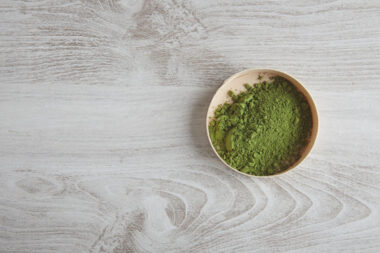
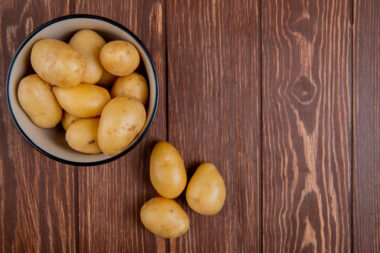





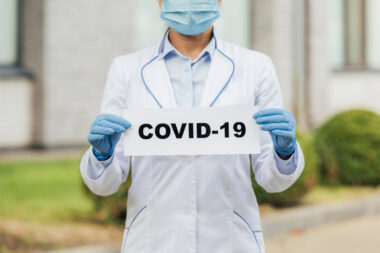






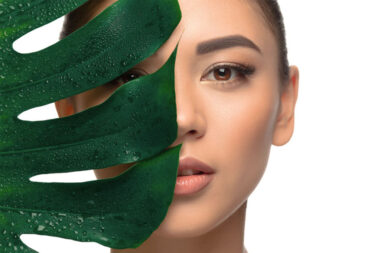








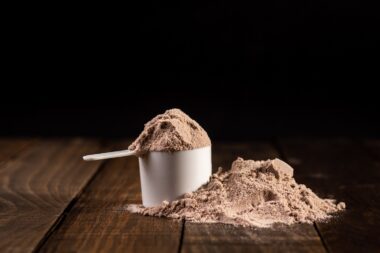




In addition to eating a healthy diet, it is also important to practice effective skin care habits, including cleansing the skin daily, using a moisturizer, and wearing sunscreen to protect the skin from damage caused by UV rays.
Agree 💯